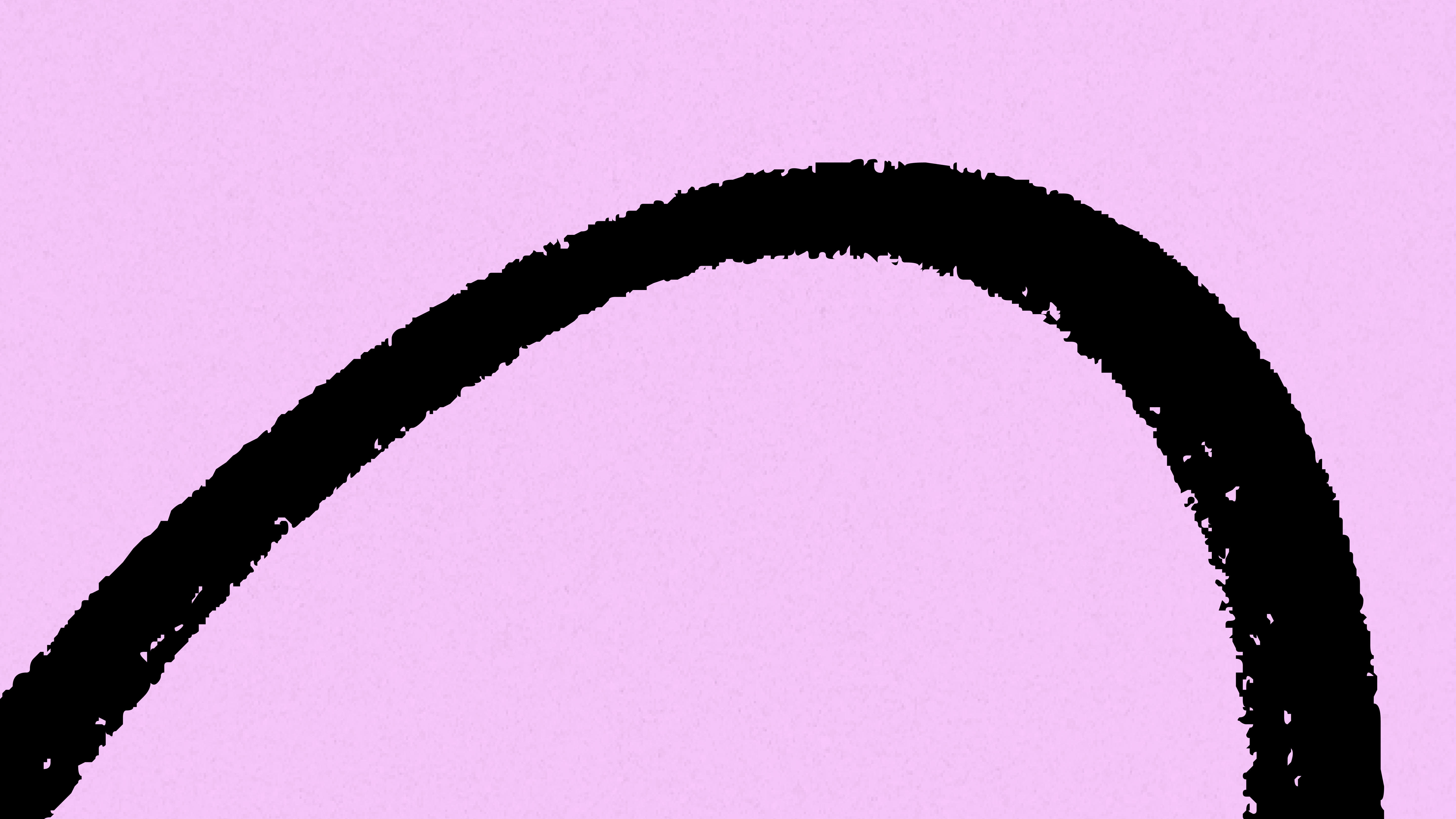
In Part 8, we looked at divergence and convergence as the two fundamental modes of all creative work.
Now let’s see what this looks like in our day to day schedules.
The main feature of the modern workday, you may have noticed, is fragmentation.
Because we can now so easily switch between activities – whether by jumping in an Uber or onto a Zoom call – it becomes feasible to rapidly switch between multiple projects in a single day.
Instead of viewing this fragmentation as a threat, we could view it as an opportunity to adopt a more agile, lighter, more mobile way of working.
What we need to make that happen is the ability to “freeze” a project in its current state, preserving its context and details in such a way that we can seamlessly pick it back up again in the future.
What we need is better placeholders.
Just as bookmarks allow us to go right to the point where we stopped reading the last time, placeholders preserve the current state of a project so we can switch away from it without losing our progress.
Let’s take a look at a typical weekday schedule for a knowledge worker. This graphic represents approximately all the time someone could potentially be working: about 16 waking hours between waking and going to sleep. Only about half of this time on average is actually spent working, but if we include any kind of communication or thinking about work, those eight hours are spread out over as many as 16 hours.
Let’s start by assuming this person spends 100% of their total working time doing solo, focused work. Adding the typical path of a flow cycle to their main blocks of time, we see that some time in each block has to be spent getting back up to speed.
But of course, this ideal scenario is totally unrealistic. Most days, we are faced with a mix of focused and non-focused work. The red sections reveal the problem:
With only small spans of time available to make real progress on our projects, even the few chances we get to go deep on something are mostly spent in the struggle stage. We never get to the flow state and the rewards it brings, both psychological and results-wise. This is how you can spend all day working hard and end the day feeling like you didn’t accomplish anything of real value.
By properly placeholding our work at the end of each session, we avoid incurring the penalty of the struggle stage each and every time we sit down to work. Instead of spending our time trying to load every last detail into our brains, only to unload it soon after, we dedicate ourselves to documenting our work-in-process in external form.
Our days begin to look like this instead:
Notice that the handoff from one session to another is never completely frictionless. Even the best documented work takes a little bit of time to contextualize. But at least you’re not starting from zero. Smaller spans of time that normally wouldn’t have been worth much start to become opportunities to prepare and plan for the longer sessions, now that those plans are in tangible form.
The truth is, our days are not usually divided neatly between focused and non-focused work. We usually have multiple, interwoven, competing threads competing for our attention across different timescales.
This makes it even more important to have solid placeholders every time you complete a work session: you have no idea when is the next time you will be able to come back to a given project.
It could be hours, in which case you’ve saved some minutes getting back up to speed. It could be days, in which case you’ll have saved hours. But it could also be months or even years, in which case having good placeholders will often determine whether you ever pick it up again.
There are countless ways of creating placeholders, all of which can be created in a note-taking app:
- At the end of a few hours of online research, create a short summary of the best websites you found, and why you found them valuable
- After a meeting where a lot of ideas were raised, spend a few minutes assigning action items
- As you’re leaving an event or conference, take a little time to jot down an outline of your top learnings
- When finishing a book, write a short review on Goodreads
- When watching a presentation, save a couple photos of the best slides with a few points on their relevance
- After finding an interesting travel website, clip it to Evernote with a #travel tag
Creating placeholders doesn’t take a lot of effort. It doesn’t take any special skill or technology. It pays off now – in the form of better understanding – and in the future – when you’re able to pick it up again quickly.
In fact, you may have noticed that placeholders sound familiar…they are intermediate packets!
Convergence required
The most important thing to keep in mind when creating a placeholder is that it can only be done in convergence mode. You are free to roam as far and wide as your heart desires during divergence, but if you don’t end the session with at least a quick bout of convergence, your work-in-process will be too scattered and unstructured to pick back up easily.
Flow cycles are a precious commodity. You’re only given so many in your life, and the success and impact of your career will largely come down to how you chose to put them to use. My advice is to not spend them trying to remember what you’ve done in the past.
Instead, structure everything you do as an intermediate packet, end each work session with a clear deliverable, send them off for feedback whenever possible, and offload to your digital notes every possible bit of thinking during this entire process.
Follow us for updates on Twitter, Facebook, Instagram, LinkedIn, or YouTube.
The Only Subscription
You Need to
Stay at the
Edge of AI
The essential toolkit for those shaping the future
"This might be the best value you
can get from an AI subscription."
- Jay S.
Join 100,000+ leaders, builders, and innovators

Email address
Already have an account? Sign in
What is included in a subscription?
Daily insights from AI pioneers + early access to powerful AI tools
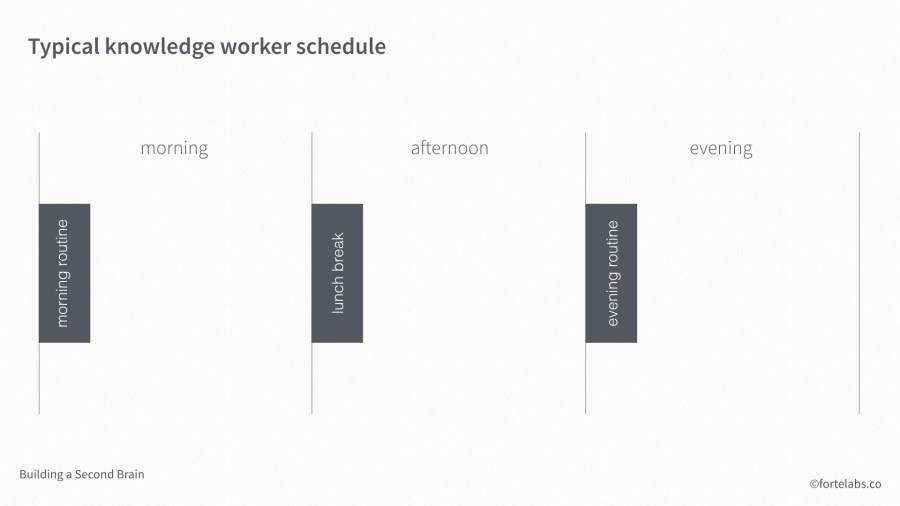
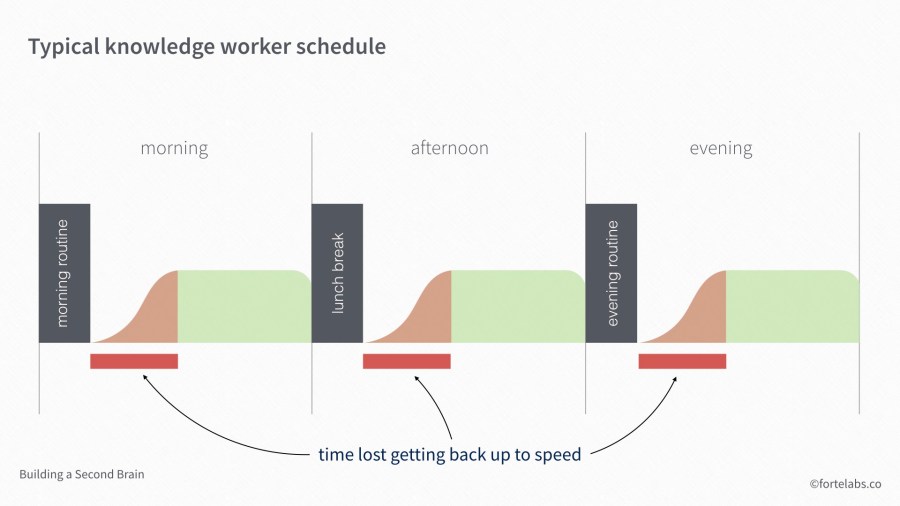
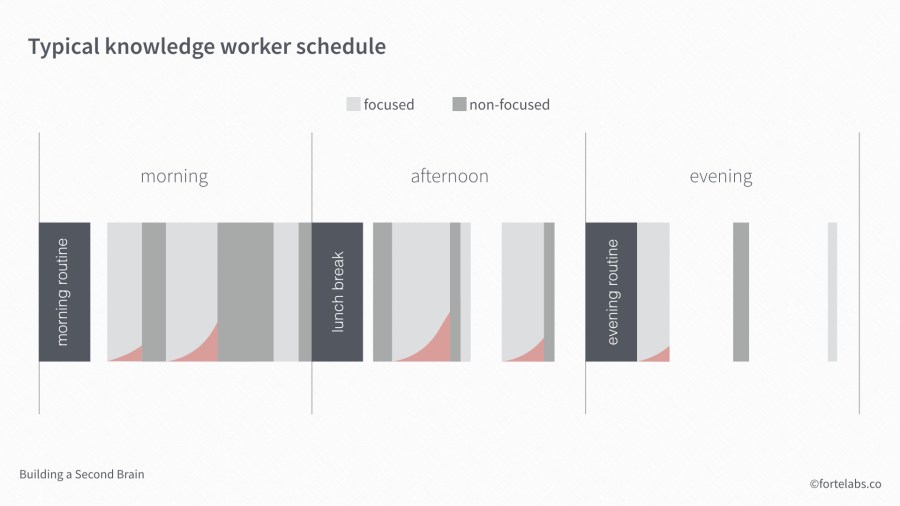
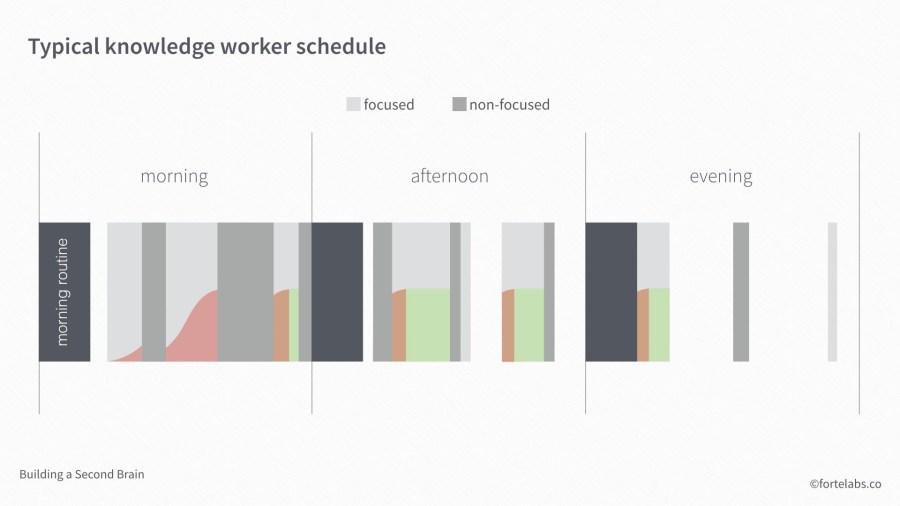







Comments
Don't have an account? Sign up!